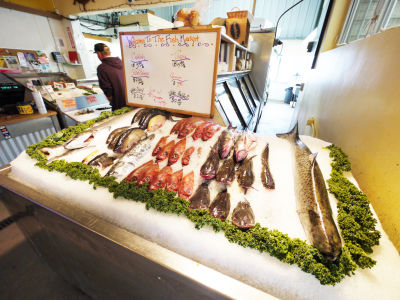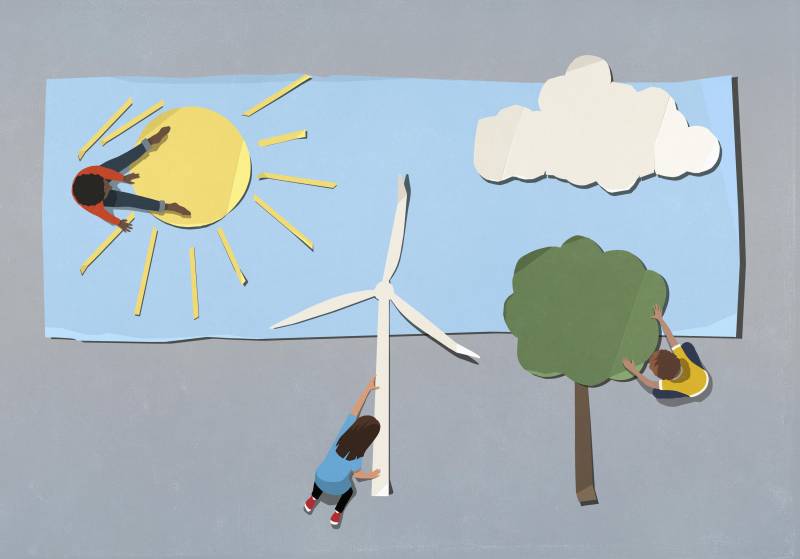By using home appliances and vehicles that run on electricity, we can help reduce our carbon footprint and leave more fossil fuels in the ground. Here are a few appliances to consider:
Induction stove: These use magnetism to heat a pan and consume less energy than a traditional electric stove.
Clothing dryers with the “Energy Star” label: Efficient dryers that have the Energy Star label use about 20% less energy than regular dryers.
Water heaters that use heat pump technology: They’re two to three times more efficient than most electric water heaters and can help save money on utility bills.
Making these upgrades to your home and lifestyle will cost money — and you will need to plan ahead. So don’t feel like you have to change out your appliances overnight. Instead, buy them as your existing machines wear out.
Reported by Stacey Vanek Smith

Let’s say you’re at a restaurant or the fresh fish counter at the supermarket and you want to get the salmon — but you’re not sure whether it’s sustainable. To find out, simply ask the server or the fishmonger. Here are two key questions:
Is this fish pole- or line-caught? If the answer is yes, that’s usually a good sign, says Jennifer Dianto Kemmerly, vice president of global ocean initiatives at the Monterey Bay Aquarium. “Even at a commercial scale, a fishing boat can see what they just reeled in and if they caught a fish that’s too small or is a different species they didn’t intend [to catch], they can quickly release it.”
Is this fish caught in the U.S.? If so, it’s probably a sustainable choice. “The U.S. has some of the most stringent regulations” of fishing in the world, Kemmerly says.
Reported by Maria Godoy
Meat production is hard on the environment: It requires a lot of land to raise cattle — and globally, many forests are being cleared to make room for those animals. Deforestation releases lots of heat-trapping carbon dioxide stored in the trees into the environment. And cows themselves release a lot of methane, a powerful greenhouse gas, in the form of burps.
If people in the U.S. and other heavy meat-eating countries could cut back their beef consumption, it could have a major impact on creating a more sustainable food system.
To curb your diet’s environmental impact and fight climate change, you could go vegetarian or vegan — but you don’t have to. It turns out, cutting back a little can have a big impact.
Richard Waite, director of agriculture initiatives at the World Resources Institute, recommends eating less of the most resource-intensive meats: goat, lamb and especially beef — the most commonly consumed of these meats. Cows “take the most land to grow and feed,” he says.
Reported by Fiona Geiran and Stacey Vanek Smith
Trends move so quickly these days. It’s tempting to buy what’s hot and follow whatever fleeting microtrend is “in” right now.
But that leads to more clothes in landfills — only 1% of clothing actually gets recycled into new clothing. And making textiles is a very water-intensive process, not to mention human labor issues with a lot of fast fashion manufacturing.




